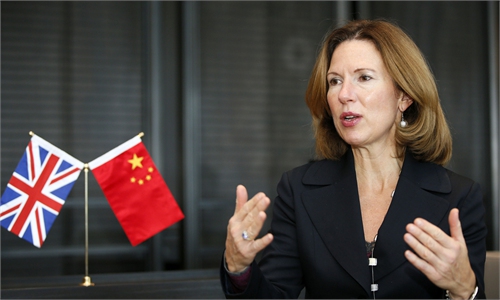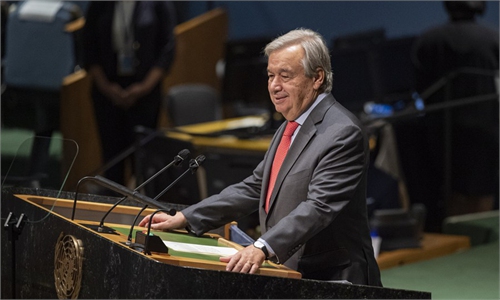
Illustration: Liu Rui/GT
UK Prime Minister Boris Johnson is scheduled to visit India in April, Reuters reported on Tuesday.As the UK leader's first major international trip post-Brexit, the scheduled visit to New Delhi clearly shows the Johnson government's intention to woo India while tilting to the Asia-Pacific region.
Unsurprisingly, some Western media outlets interpreted Johnson's visit as a way to counter China's influence. But it is still doubtful whether such high interest in the Indo-Pacific region could lead to any substantial cooperation between London and New Delhi.
And, the skepticism is not groundless. It is no secret that the UK has been pursuing strengthened ties, geopolitical or economic, with all of its Western allies after exiting the EU common free trade bloc, let alone the fact that even in the Indo-Pacific region, India doesn't seem to be the only option for Johnson's administration.
The UK has made a formal application to join the Comprehensive and Progressive Agreement for Trans-Pacific Partnership (CPTPP), and it has also applied to be a dialogue partner of ASEAN.
While the UK government may intend to send a signal that it values its traditional relationship with India, the irony is that it is probably unable to display that friendship by promising any tangible benefits to New Delhi.
Fundamentally speaking, the British economy still faces multiple shocks and uncertainties from Brexit, and it remains to be seen whether the UK government can really reverse the severe COVID-19 pandemic situation at home just through vaccinations as the coronavirus is mutating there.
There is no need for India to expect too much of its relationship with UK. From a geopolitical perspective, India is not among Britain's top strategic allies. Economically speaking, India is a marginal partner within the UK's industrial chains and supply chains, revealing a lack of a solid economic and trade partnership between the two economies.
And it is also questionable whether Britain has the sincerity and ability to help India's pandemic-hit economy or it only intends to use India's geopolitical position to shadow China.
In fact, a number of Western countries have appeared to attach great importance to India due to the South Asian country's market potential. With its dream of becoming a great power in the region, India also knows that it must be cautious in engaging geopolitical plays in order to maximize its own interests. In this sense, Johnson's visit to India is unlikely to produce the effect of putting pressure on China as some are expecting.
For the UK, it is not easy for it to integrate itself into the Asian industrial chain that it has left for so long, and it is aware of the fact that India's manufacturing base can hardly support the global and regional industrial chains.
Of course, there is nothing wrong with London to plan for the long term by strengthening ties with India, but denying or countering China's growing role in the regional and global industrial chain will only complicate its own trade advancement. In the end, it is impossible to find an alternative economy as comprehensive and diverse as China's in Asia.



